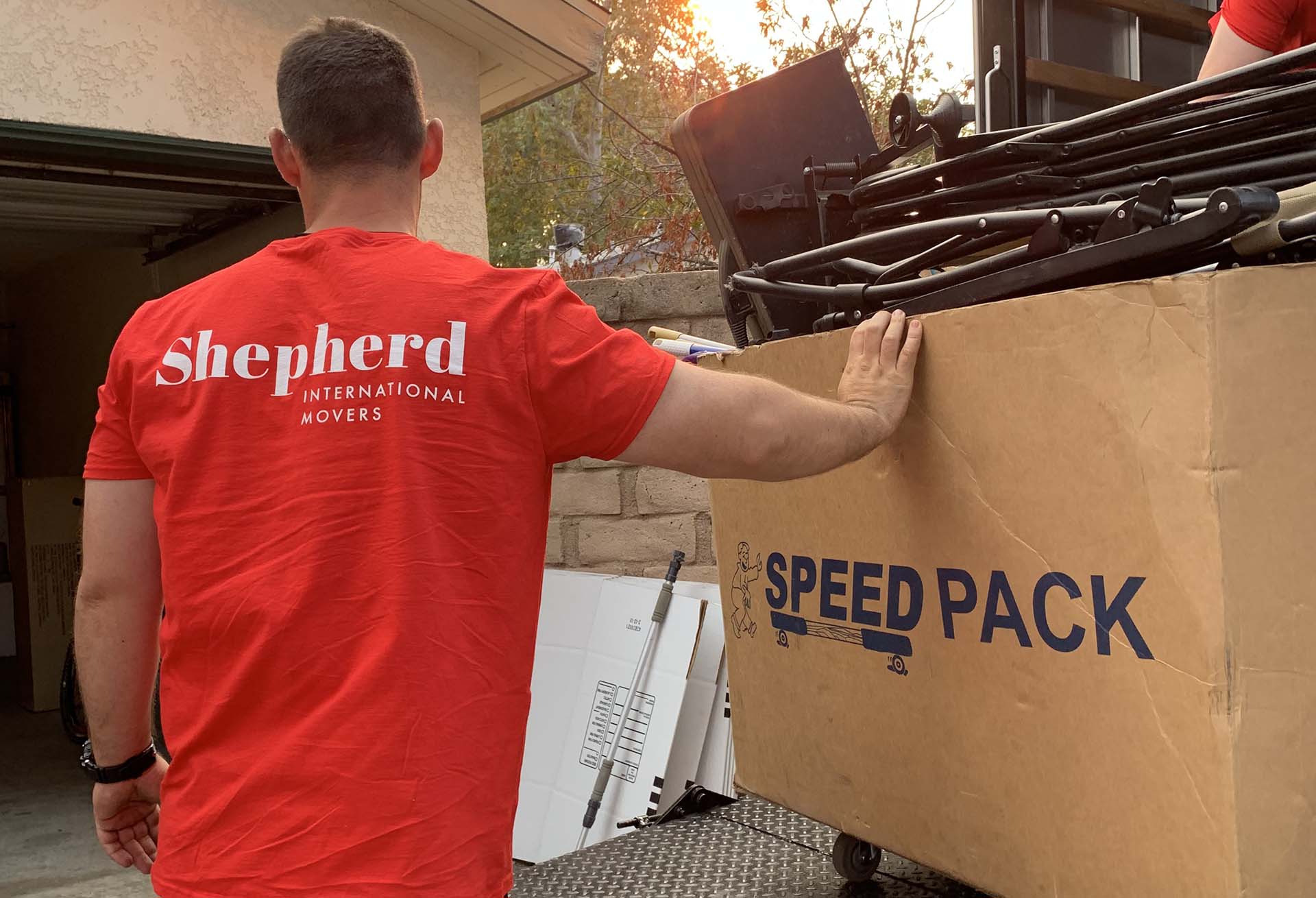

You have been planning to move overseas for years, and now you’re finally doing it. Good for you! However, to prepare for the transition properly, tips for learning a new language will come quite handy if you’re going to a place where English isn’t widely spoken. There are about 6,500 languages spoken in the world that we know about. Each one of them makes this planet a more diverse and beautiful place.
Once you decide to move, the first thing you need to do is hire a professional international moving company and organize the whole move. But if you’re relocating to Spain or Mexico, for example, you need to take one extra step in the whole preparation process – learn some Spanish. So besides ensuring a packing service and renting a storage facility for your belongings, you should think about how you’ll adjust to the new country.
One of the Best Tips for Learning a New Language Fast is to Set Your Goals
Relocating across the world isn’t the easiest thing to do. You need to plan the whole process – from making a checklist for moving abroad to deciding what to pack and considering whether shipping a car overseas is a good idea (with professionals, overseas vehicle shipping is always definitely worth considering). And above everything else, you have some studying to do.
For example, if you’re relocating to Hungary, the majority of the population there speak Hungarian. Without the vocabulary and some of the most used phrases, you won’t feel comfortable and won’t be able to get around as easily. That’s why you should always keep in mind the reason why you’re doing all the hard work and how it will help you in the long run.
Be Realistic and Make the Learning Process Easier
Picking one of the best cities to live in Europe or the world isn’t enough. You should also check many other things before the move and ensure you’ll manage to blend in. This might sound like an unnecessary thing to do, but know that living overseas is a challenging process, especially if English isn’t the official language.
So, once you set your goals – adjusting as quickly as possible to the future home, you should think rationally about how long it takes to learn a new language fluently. It surely isn’t something that you can do in a few days. But if you set the right expectations, you’ll be more successful, and it will give you a boost of confidence during the hardest period – after the move. Start with smaller steps and set minor goals for yourself.
Start With the Common Words and Phrases
When you break this whole process into smaller pieces that will be more manageable for you, start with the phrases you’ll use the most and with the most common words. That way, you’ll break the language barrier more easily once you settle in. However, keep in mind that you won’t be able to speak fluently right away.
Even if you’re moving to one of the friendliest countries in the world, and people will be more than willing to help you study, all the hard work will be your job exclusively. Yes, there are many things you have to learn, and yes, it will be a challenging process. But when you’re well organized, there will be no confusion and stress. That being said, let’s see how to structure your lessons:
- Alphabet – in many languages, luckily, the alphabet is similar to the one you already know. Check for some special characters or letters with accents.
- Pronunciation – even if the alphabet is the same (or similar), it doesn’t mean that every word is pronounced the same. Figuring out the correct pronunciation now will help you avoid some bad habits you could struggle with later.
- Idiomatic expressions and sentences – knowing some basic sentences is a good idea if you don’t have a lot of time for this process. These structures will help you practice pronunciation, too.
- Important verbs – knowing 4-5 key verbs, like “to have” or “to be”, will significantly improve your understanding of the language.
- Most used vocabulary – in most cultures, there are lists of most used words. Knowing those that are used constantly will boost your confidence in everyday conversation.
How Many Hours a Day Should You Study a New Language?
For most people, classes of 30 minutes or one hour a day will be sufficient. This is an excellent method if you have enough time, like a whole year. On the other hand, if you don’t have it, you should study more intensively, if possible. This doesn’t mean you have to spend the whole day reading and memorizing every word. Instead, you can watch movies or listen to music or the radio.

Conversation Is the Half Work Done
Knowing how to move abroad, especially if you’ve never done it before, can be a challenging task. You have to think about practical things, such as gathering all the needed documents to travel abroad, and about the period after the move.
You’ll communicate with the locals when going to the groceries, right? Because of that, you’ll need some conversation practice. It’s the most efficient way to learn a foreign tongue, rather than reading a book.
Another important part of your studying is gestures. When we speak, we make a gesture that helps memorize the specific word more quickly. That’s why gesturing plays an important role in learning a foreign tongue. Not to mention that certain nations, such as Italians and Spanish people, are known for using their hands during conversation all the time.
To avoid possible confusion, check out the video below to see how the same gestures mean completely different things in different countries.
Reading, Listening, and Writing Are the Other Half
After you find one of the best countries to live in and grasp the basics of sentence construction, you should start building up your vocabulary. Gradually, because this kind of work needs time and patience. Just like you will learn how to live abroad, you’ll manage to overcome barriers you’ll find in the foreign tongue.
The best way to grow your vocabulary is to be exposed to it. By this, we mean read newspapers, books, listen to music, and write. For example, if you’re learning Spanish, set your phone and Gmail account to Spanish. That way, you’ll internalize some phrases automatically. Also, ensure all of your social media apps – Twitter, Instagram, and Facebook – are in Spanish (or another tongue you’re studying).
What Is the Fastest Way to Learn a New Language – Choosing the Method That You’re Comfortable With
Luckily, nowadays, there are many online platforms where you can take all sorts of courses. Some are free, and some aren’t. However, if you’re using Twitter, Facebook, and other social media, take advantage of them and make the whole process much easier for you. Change the settings and read all the news and things that interest you in the foreign tongue. It will be pretty challenging at first, but you’ll be able to communicate with other people more quickly.

Put Words in Contest to Memorize Them Faster
People decide to move for many reasons. And when we pick the best place to live abroad, we give it our all to make it happen, right? One of the obstacles you’ll run into is most certainly the language barrier. You have to be prepared that some countries and nations just don’t speak English. That is why a word or a sentence should be associated with some situations. That way, you’ll memorize them much faster.

Don’t Worry About Mistakes, You’ll Make Many – Just Embrace Them
With all the moving stress accumulated and all the culture shock you expect, worrying about the mistakes you’ll make while speaking with the locals can be just too overwhelming. The important thing to understand in this whole process is that mistakes will 100% happen. Some are inevitable, especially if you’re dealing with Latin-based languages with similar pronunciations: Spanish and Italian, for example. You just have to deal with it and learn from them. As time passes, you’ll make fewer and fewer mistakes and be more confident.

Always Carry a Dictionary With You – Digital or Pocket Size
Living in Europe as an American or in any other place on the planet where English isn’t the official tongue can be though. However, if you’ve done your homework, you probably already know some basic conversational constructions. That might be enough initially, but ensure you always have your dictionary, whether a digital or paper version. That way, even if you don’t understand something, you can always check and write down that unfamiliar word.

You Don’t Have to Learn With an Expert – Use Apps and Other Methods
Relocating overseas alone, for some of us, can be good news. That way, you won’t have a partner with whom you’ll communicate in English, and you’ll be practically forced to use the foreign tongue. However, this doesn’t mean you need to hire an expert to teach you. Instead, check some free courses on Twitter, LinkedIn, and Facebook groups.
Also, there’s this myth that age plays a big role in learning a foreign tongue. Okay, children and adults do acquire information differently, but that doesn’t mean an adult can’t achieve this goal. So once you know how to move overseas, start looking up some courses.

Practice Whenever You Have Time With a Partner or on Your Own
Don’t think you’ll be all alone after the move with the knowledge you’re not so confident in. Every country has expat communities that will understand your struggles and help you overcome them. But besides their assistance, you should practice the things you’ve learned so far whenever you can. This means looking for opportunities to talk to another person or even yourself for at least half an hour every day.

Forget About Your Comfort Zone and Speak as Soon as Possible
You’ll see no improvement if you don’t leave your comfort zone. Letting yourself improve all the aspects that will affect your fluency and knowledge is something you owe yourself. Don’t let all the hard work you did before the move be in vain because the ultimate goal is to speak the foreign tongue and feel confident while doing it.








